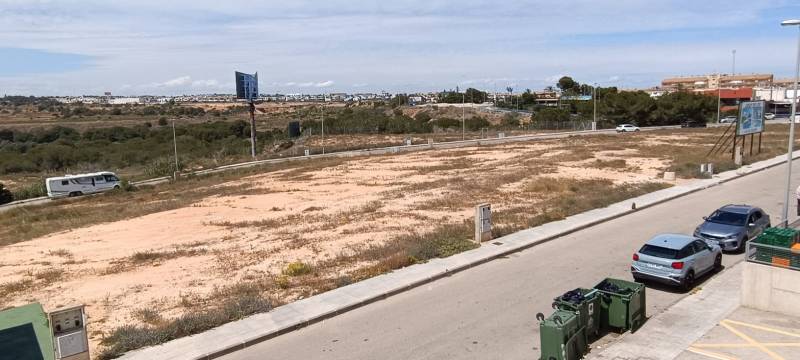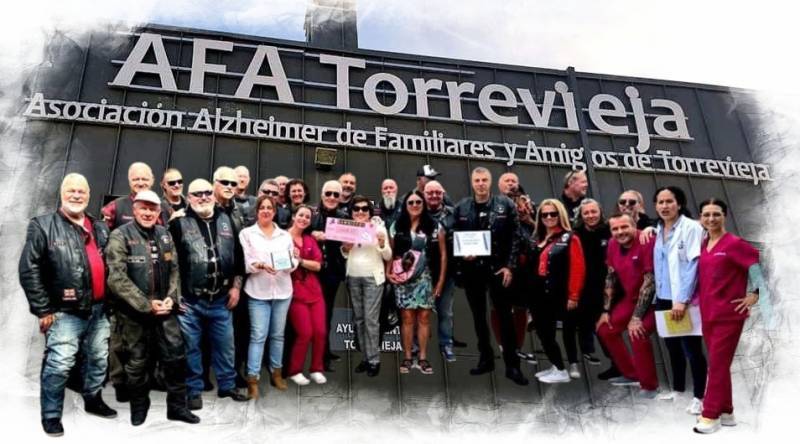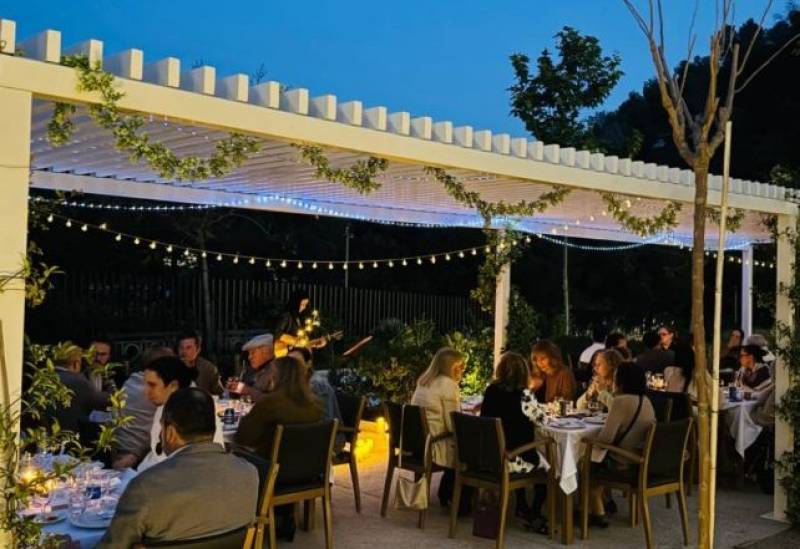Spanish News Today Editors Roundup Weekly Bulletin May 9
TOP STORIES: "Best beaches in Spain 2025 revealed with prestigious Blue Flag announcement" & "Spain’s train troubles refuse to end"
We have a
new Pope, Leo XIV. The first ever Pope from the USA, and a Spanish-speaker to boot, since he has dual Peruvian citizenship, having spent years ministering there. Actually, he has Spanish ancestors, too, on his mother’s side.
This edition of the Editor’s Roundup Weekly Bulletin also brings you train pains, motoring madness and the beach Blues. These are the biggest news stories from around Spain this week:
Rail fail
Exactly a week after the dramatic apagón in Spain (about which, incidentally, the government has said the official investigation
will not have any definite answers for “months” yet), there was another large, disruptive incident in the country that has left the authorities red-faced. Whether with anger or embarrassment is for you to decide.
In total, some 30 trains were affected when thieves decided to help themselves to the cabling which is vital to the network’s signalling and safety systems. The culprits were methodical: they cut through chain-link fencing, accessed isolated trackside boxes only reachable by forest trails, and sliced out segments of copper using precise tools.
The thieves seemed to know what they were doing, as they carried out the theft in an area that had no CCTV and no security patrols. In all, four separate thefts had occurred within a 10-kilometre stretch.
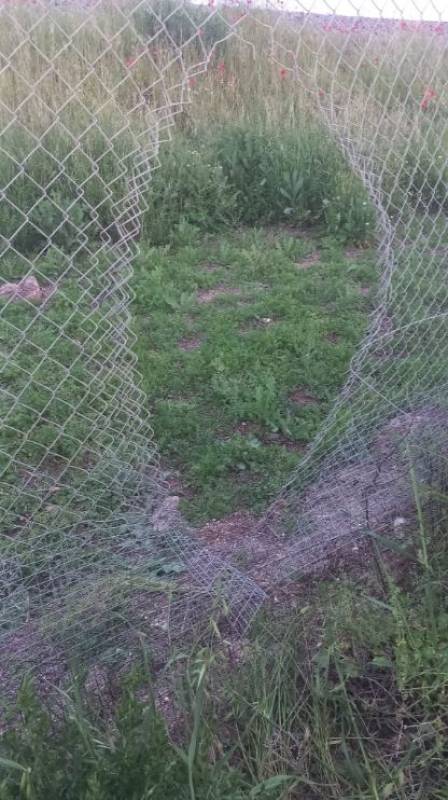
The stolen cables triggered a full-blown transport meltdown, especially bad timing with people trying to get home after the long weekend. Trains were severely delayed, of course, and although the situation had
mainly been resolved by Monday morning, the knock-on effect of so many stranded passengers still looking to travel from Sunday night meant that the chaos lasted well into Monday afternoon before things could get *ahem* back on track.
You can just imagine the scenes at Madrid’s Atocha station and Seville’s Santa Justa, with thousands of people waiting around, patiently and calmly and not at all confused or irritable with hapless station staff.
At the same time, another unrelated issue popped up – a signalling fault near Córdoba on Monday afternoon that added another 25 minutes of delays just for good measure.
So far, so pretty-much-standard travel troubles. But here’s the weird part.
According to experts, the stolen copper wiring, which amounted to around 128 kilos – would be worth somewhere in the region of €300-€1,000. Not bad for your bog-standard chatarrero, those modern-day rag ‘n’ bone men you see fishing for scrap metal in the large dustbins to sell to scrap dealers.
But for the sheer lengths the thieves went to, the risks they ran with an operation like this, it is not a lot of money. Investigators now strongly believe the cable theft was not just a cash grab, but, in the words of Transport Minister Óscar Puente, “an act of serious sabotage.”
With Spain still investigating whether last week’s blackout was also caused by saboteurs, one can’t help but wonder who’s got it in for the country’s entire electrical and transport grid, or who the government is so paranoid about. I mean, come on, it’s not like the Russians or the Israelis are going to send some guys down to the middle of nowhere in Toledo to steal copper cables just to cause a bit of bank holiday backlog, are they? Are they?
Drug and dumber
It’s all based on the idea that a parked car is considered a “private space” by law, which, admittedly, seems a little strange.
This guidance was sent out to the National Police forces at the start of the week and it’s already stirring up a lot of drama. Police unions like SUP and Jupol are strongly opposing it, raising concerns that it could cause more problems in neighbourhoods, like increased public disturbances or even more cases of people driving under the influence.
They’re also worried about the message it sends, fearing it could erode public trust in the police and weaken their ability to take action when needed.
Up until now, drug use or possession in public places (like on the streets or on public transport) could lead to fines ranging from €600 to €300,000. But there was one massive loophole, as the law didn’t specify whether using or possessing drugs in a private car counted as a serious offence, leaving it up to individual police officers to decide.
Now, the Ministry is leaning on several rulings from Spain’s Supreme Court, which have said that while a car isn’t quite the same as a home, it still counts as a private space that deserves some level of privacy.
As you can imagine, the police unions aren’t too happy about this. Both SUP and Jupol have slammed the decision in strong statements. SUP called it “inconceivable”, arguing that it completely undermines the preventive work of the police, leaving officers without the legal tools to act in situations that could end up causing serious accidents.
Once the word gets out, there’s also likely to be public uproar. Imagine, someone could be sitting in their car, taking drugs right outside your home, and there’s not a thing the police can do about it. Not to mention that then presumably the car’s occupant will have to get where they’re going, so they’ll start up the vehicle and begin driving under the influence, which is still illegal.
It’s truly baffling.
Blue Flag bingo
Every year in early May, we get the annual Blue Flag results, to see which beaches and coastal area in Spain and around the world have been granted, held onto or lost their quality status.
The Blue Flag is essentially the Michelin star of beaches: awarded by the Association for Environmental and Consumer Education (ADEAC), it recognises excellence in water quality, facilities and environmental management.
Spain’s performance when it comes to Blue Flags is always impressive. Around 91% of the beaches submitted get the award, proving that Spanish beaches are truly world-class. But there are always controversies for those towns whose beaches lose a Blue Flag for whatever reason, and you can bet that more than a few Councillors for Tourism, or the Environment or Coastal Areas will have their heads on the chopping block somewhere in the country.
In terms of which part of Spain has the most Blue Flags, the Valencian Community has once again beaten off the competition with a smug 143 flags fluttering across 48 municipalities (five more than last year).
Andalucía made the biggest leap, adding eight to its total to reach 138. Meanwhile, Galicia and the Canary Islands had a bit of a wobble, losing six and nine flags respectively. No doubt some Galician mayors are currently trying to bribe seagulls to behave better next season.
Special mentions were also handed out by ADEAC: Fuengirola, Palma and Sant Llorenç des Cardassar were praised for their lifeguard services, while Arnuero, Chipiona and Málaga got gold stars for accessibility.
Drilling down to local level, Sanxenxo (Galicia) kept its crown with 19 Blue Flag beaches, followed by Vigo (13) and Orihuela (11). Then there’s Cartagena, Marbella and Sitges, each proudly displaying 10.
Down in Murcia, things are looking reasonably bright. The Region’s
tally has gone up to 36 Blue Flags: 29 for beaches, seven for marinas, and at least a few more reasons to print shiny new tourism brochures. Cartagena is the big show-off this year, reclaiming Blue Flags for Calblanque and Cala del Barco. The latter hadn’t seen a flag since 2012, which is practically prehistoric in beach years.
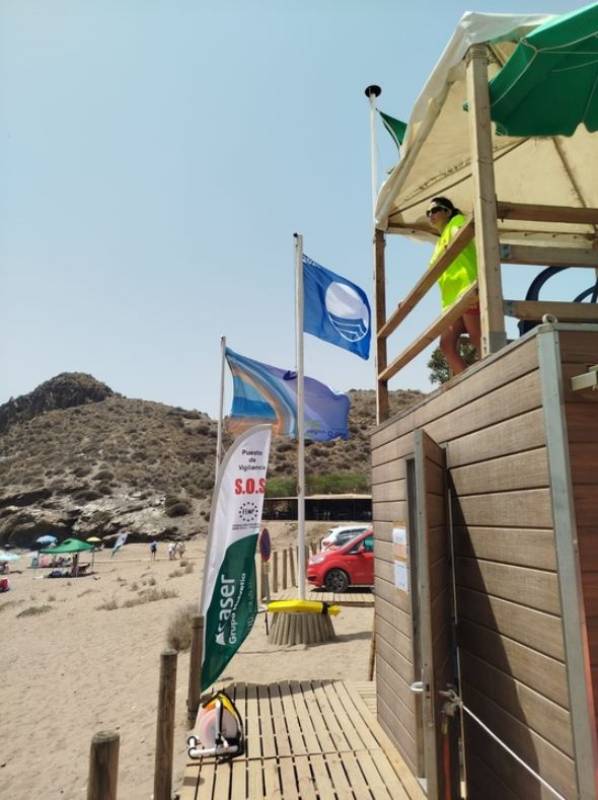
Murcia also reached a milestone: for the first time ever, all of its coastal regional parks now include at least one Blue Flag beach. Someone at the tourism board is definitely high-fiving themselves.
But not all is sunny. The Mar Menor, that poor lagoon plagued by years of environmental mishaps, has once again been ghosted by the Blue Flag gods… for the ninth year in a row.
Meanwhile, Águilas lost two Blue Flags due to delays in removing its chiringuitos, which apparently didn’t meet the strict compliance checklist. San Javier gained a new Blue Flag for El Arenal, Mazarrón redeemed itself with Playa de Nares and San Pedro del Pinatar bagged a fresh marina award.
Then there’s
Alicante, which has 89 Blue Flags, which is more than 11% of Spain’s total flags in just one province. Alicante also gets bonus eco-points: 13 of the 23 environmental interpretation centres recognised this year are located there.
Three of the province’s beaches – El Bol in Altea, Punta Negra in Denia and Ortigues Campo in Guardamar del Segura – won their first Blue Flags, while Playa del Poniente in Benidorm made a glamorous comeback after a few awkward years in exile due to water quality issues.
Four beaches in Alicante lost their flags this year, including Mal Pas in Benidorm and L’Albufereta in Alicante capital.
Orihuela remains top dog in Valencia, with 11 Blue Flags, ranking third nationally.
Of course, you’ll have your own favourite beach and it may or may not have anything to do with whether it is flying a Blue Flag or not. You might not even ever have noticed or given a thought to them. But Spain flexes hard on the international stage when it comes to beach quality, holding 15% of all Blue Flag beaches worldwide and placing third for marinas.
In the great game of Blue Flag bingo, Spain is still winning. Whether it’s a PR stunt or a genuine triumph of environmental management, it seems to be working.
Murcia
Believe it or not, this month of April just gone in Murcia was the
fifth driest April of the 21st century, with a mere 13.8mm of rain – just 64% of the monthly average. The temperatures, however, seemed to be on a mission to make up for the lack of precipitation, with average lows of 9.6°C and an overall monthly average of 15.5°C, making it the sixth and ninth warmest since records began in 1961, respectively.
And then, just when everyone was ready to dust off the flip-flops early this year, May has decided to come in with rainstorms. In fact, a
sudden and intense storm swept across the Region this Thursday, bringing heavy rain and even hail (hailstones! In May!) that caused traffic disruptions, particularly near Mula, and prompted emergency alerts across multiple towns.
Despite 47 weather-related incidents being reported, including road blockages and minor landslides, there were thankfully no injuries or major damage. But it’s still going to be a bit wet this weekend, I’m afraid, with more weather warnings currently in place for Saturday afternoon. So your plans to go and visit the newly crowned Cala del Barco beach may have to wait.
The latest is in from Corvera Airport, and not just the usual monthly passenger figures. This week, airport operator Aena
downgraded its long-term passenger forecast by 35%, now expecting 39.9 million passengers by 2043 instead of the initially projected 61.4 million.
This will come as a surprise to anyone who had been following the airport’s fortunes since its grand opening in 2019. If you have missed it, in short, it has struggled to live up to its hype, trailing behind its predecessor, San Javier Airport, and struggling to justify its costly existence.
Financially, the airport’s outlook isn’t exactly sunny either. Projected revenue from 2019 to 2043 has been slashed from €832.7 million down to €525 million, a 37% decrease from initial expectations. Operational expenses, on the other hand, have surged by €73 million, thanks largely to inflation. In 2024, revenue dipped slightly to €14.8 million from €15 million the previous year, with the summer season seeing the sharpest downturn.
Down in Mazarrón this Tuesday, a young
Cuvier’s beaked whale was found dead on Playa del Alamillo beach (Blue Flag). The rare specimen, resembling a very large dolphin, required a crane for removal due to its size. The cause of death remains unknown, pending a necropsy, but possibilities include – as they normally do in cases like these – illness, disorientation or a collision with a boat.
On a lighter note, dog owners in Balsicas have something to wag their tails about: in response to the rising number of local pet owners seeking safe and stimulating spaces for their furry friends, Torre Pacheco Council announced
plans to build a new dog park, investing around €105,000. The 1,222-square-metre park will feature shaded areas, benches, bins, lighting, a drinking fountain for dogs and an agility zone.
And lastly, for those seeking adventure with a side of eco-consciousness, you can try out this unique experience in Bolnuevo: a
two-hour audio-guided tour through the protected landscape of the Sierra de las Moreras in a 100% electric buggy. Run by local company Ecoadventure, the 11-kilometre route showcases the stunning Bolnuevo coves, with stops for scenic views and opportunities to learn about the area’s geology, history and flora. The tour concludes at Cala Leño beach (not Blue Flag), where participants can swim or snorkel, weather permitting. Cool, huh?
For more ideas of things to do in Murcia, see our EVENTS DIARY:
Spain
Last week’s massive power outage in Spain was a harsh wake-up call and it drove home a truth many of us tend to forget until it’s too late:
cash is still king. With electricity, internet and mobile networks suddenly knocked out, card machines everywhere were useless. If you didn’t have cash on you, even buying something as simple as a litre of milk was out of the question. It didn’t take long before huge queues started forming at ATMs, as worried people rushed to grab whatever cash they could.
It wasn’t just inconvenient; it was unsettling. Moments like these remind us just how fragile our digital systems can be and ok, we all know that the blackout was unprecedented and chances are pretty slim of it happening again, but still, it makes a pretty compelling case for keeping some emergency cash tucked away at home.

That said, there’s a catch and it comes in the form of Spain’s ever-watchful Tax Agency, Hacienda. They’ve got a sharp eye on what we’re withdrawing, depositing and generally doing with our money. So if you’re thinking about setting aside some ‘just in case’ funds, here’s what you need to know.
First off, it’s completely legal to keep cash at home in Spain. There’s no cap on how much you can stash under the mattress or in a safe, but if you’re ever audited, you’ll need to show that the money came from a legitimate source, and that you’ve paid any taxes owed on it. No receipts, no peace of mind.
In recent years, the Tax Office has tightened the rules for banks. If you want to withdraw or deposit more than €1,000, you’ll need to do it in person at the counter – the ATM won’t cut it. Go over €3,000, and the bank has to report it to Hacienda, which might open the door to an audit.
Even smaller, frequent transactions can raise red flags. Regular withdrawals of €600 or €700? That could be enough to spark suspicion. And if you’re dealing with €500 notes? You guessed it - the bank is obliged to notify the authorities.
So, what’s the takeaway? Having some cash at home, especially after the chaos of the blackout, is not just smart, it’s recommended. In fact, the EU advises everyone to keep a 3-day emergency kit at home, and yes, that includes physical money.
Just remember: while it’s your right to keep your money private, the Tax Office is always watching. If you ever get called in to explain that pile of cash, you’ll want to make sure your story - and your paperwork - holds up. Otherwise, that rainy-day fund could turn into a financial storm of its own.
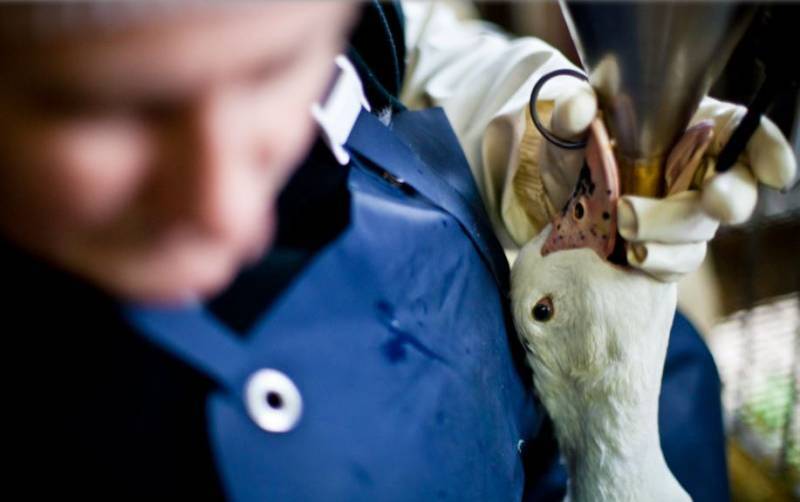
Foie gras, literally “fatty liver” in French, is prized in fine dining, but it comes at a terrible cost. Ducks and geese are gavage-fed, with food pumped down their throats through metal tubes to fatten their livers to unnatural sizes. Animal rights groups say the result isn’t a delicacy; it’s a diseased organ.
While 14 countries have already banned this practice, Spain remains one of only five in Europe where it's still legal, alongside France, Belgium, Bulgaria and Hungary. Meanwhile, countries like Germany, Italy and the UK have outlawed it entirely.
While animal rights activists are busy trying to get this cruel practice banned, the Animal Equality Foundation is going after producers. They recently filed a complaint against foie gras sellers for misleading consumers, arguing that labels fail to explain the cruelty behind the product.
Despite gathering more than 100,000 signatures calling for a ban, Spain’s government hasn’t budged – yet. But recently a non-legislative motion calling on Congress to urge the government to prohibit force-feeding in the production of foie gras was filed, which is a step in the right direction.
Until real change comes, campaigners are betting on consumer awareness: if people understand the suffering behind foie gras, they may stop buying it, and help bring its production to an end.
Organised by the Southern European Network Against Touristification (SET), the protests aim to highlight how overcrowding and rising rents are impacting locals. Protestors have been at pains to stress that they’re not against holidaymakers per say, but rather government policies that are forcing residents out of their own neighbourhoods.
Activists are calling for a shift to a more sustainable tourism model that respects both the environment and local life. From short-term rentals pricing out families to entire areas built solely for visitors, frustration is boiling over.
While some British tourists say they understand the locals’ anger, others are extremely put out by the attitude.
One long-time holidaymaker to Tenerife said, “We’ve spent a lot of money here over the years, but it’s just not the same now. I don’t think we’ll come back.”
With summer just around the corner, Spain’s ongoing battle between the need for tourism and the right to local tranquillity has never been under such a spotlight, and it’s unclear whether the June 15 protests will mark a turning point or just another flashpoint.
Alicante
Finding parking in Torrevieja has become a nightmare, no matter the day, what with the ongoing seafront construction work and an influx of holidaymakers year-round. But after months of silence, the city’s long-promised plan for
six new car parks is finally moving forward. A contractor has now been hired to design and manage the project.
The new parking areas will be spread across key spots near the N-332 dual carriageway, including Avenida de la Estación, the Park of Nations area and Antonio Soria Park - which will host the largest car park of the six. Other locations include spaces near Avenida Ramón del Valle Inclán, Calle Juan Valera and the CV-905.
Altogether, the six sites total more than 150,000 square metres of new parking space.
The contractor has one month to complete the project designs. However, with summer fast approaching, it’s unlikely any of the car parks will be finished in time to accommodate the seasonal influx of tourists. In fact, construction during high season could further complicate traffic in the city before it makes it better.
Plans to build more homes on a plot of land in Campoamor, Orihuela Costa are sparking backlash from local residents and environmental groups, who say
the area is at serious risk of flooding and should never have been earmarked for development in the first place.
The town hall recently approved changes to allow 33 homes instead of 13 on a 6,500m² plot near the N-332, nestled between a Consum supermarket and a 24-hour pharmacy. But critics warn that most of this land sits in a flood-prone zone.
Environmental groups like Amigos de Sierra Escalona (ASE) and AHSA, backed by multiple residents’ associations, argue that this land should be reclassified as protected green space, especially as climate change increases the risk of flash flooding. They point to the devastating DANA storm in 2019, which caused widespread flooding nearby, and say a similar or worse event is likely.
Around 4,000m2 of the plot is already part of the EU’s protected Natura 2000 network, but campaigners want the whole area to be included in the Sierra Escalona ecological corridor, which links inland habitats to the Cabo Roig marine reserve.
Adding to the frustration, just last month the same groups objected to another Town Hall decision to let the same developer build 64 homes instead of 24 on a second flood-prone plot by Calle Rosa Montero. Residents say trees were bulldozed there even before approval was given.
Locals argue that the coast is already overdeveloped, and it’s “reckless” to keep building on the last few patches of natural land, especially those at risk of flooding.
The group received a warm welcome from the centre’s President and were given a tour of the facilities. They spent time chatting with staff and meeting patients, gaining a real appreciation for the work being done every day to support people living with Alzheimer’s. The Rawhiders described the visit as a truly humbling experience.
The group has supported the Alzheimer’s Association in Torrevieja since it was founded in 2010. Instead of simply giving money, they take a thoughtful approach by asking the association for a yearly wish list, which might include things like kitchen supplies, medical equipment or uniforms.
Funds are raised through local events such as charity barbecues and organised rides, with every euro going directly toward meeting the centre’s specific needs.
For those interested in learning more about the Rawhiders and their work, the group opens their clubhouse to the public on the second Sunday of each month. It is located on the CV-913 in Callosa de Segura and offers a great opportunity to get involved and support a good cause.
Andalucía
It’s not every day that residents in Granada get an unexpected wildlife show on their evening walk, but that’s exactly what happened last Sunday night when a
family of wild boars was spotted casually making their way through the Sierra and Bola de Oro areas. Locals were quick to contact the police after seeing about six of the animals, a mix of adults and younger ones, roaming surprisingly close to homes.
Two patrol cars responded, using flashing lights and sirens to gently shepherd the curious creatures back to where they came from. Thankfully, there were no injuries or property damage, and the boars returned peacefully to their natural habitat.
Granada’s local police issued a public reminder on X, saying: “Due to the proximity of their surroundings, it is likely to find them on our streets, especially at night.” They also offered some practical advice for residents: don’t approach the animals, particularly if there are young involved, and avoid leaving food waste outside of bins.
While wild boars are not generally aggressive, they can become defensive if they feel cornered. This latest sighting follows similar incidents across Spain in recent months, including a group caught rummaging through bins outside a Costa del Sol shopping centre in February, and serves as a timely reminder that humans and wildlife are often living closer together than we think.
From unexpected animal antics to unexpected tremors, Andalucía also experienced a small earthquake this week. Also on Sunday afternoon, a
3.6-magnitude quake was recorded in the province of Seville, with its epicentre located in the town of El Coronil. The seismic activity struck at 5.37pm at a depth of 25 kilometres, according to Spain’s National Geographic Institute.
The region’s 112 emergency service received two calls, one from Seville capital and another from nearby Tomares, from residents who said they had felt the shake. Fortunately, the earthquake caused no injuries or material damage.
While small tremors are not uncommon in southern Spain, particularly in areas like Granada and Málaga, Sunday’s incident still came as a surprise to some, especially those who felt it. As always, authorities remain on hand to monitor and respond to any further activity.
According to police sources, officers from the Policía Nacional had been called to a holiday apartment after the guest allegedly refused to check out. A new family was due to enter the property, but the man would not leave, prompting a call to the emergency services.
When officers arrived, the man showed them an identification document on his phone. However, something about it didn’t sit right with the officers, who asked him to accompany them to the station for further checks. He initially agreed and began walking with them, but as they approached the patrol car, he suddenly bolted.
Running through bushes and climbing a fence, he dashed into motorway traffic and was tragically struck by a vehicle. He died at the scene. It was later confirmed that the ID he presented was fake. Although his identity has not yet been fully confirmed, police believe he is not a Spanish national. Investigations are ongoing.
As the sun went down and electric lights gave way to hundreds of flickering candles, residents, staff and their families came together for an unforgettable evening filled with light, laughter and song. The garden became a gentle, glowing space where stories were shared, memories were stirred and the sense of community was palpable.
Live music added a joyful soundtrack to the evening, encouraging singing, dancing and the kind of atmosphere that turns a simple night into a treasured memory. As one staff member put it, “It was a celebration not just of tradition, but of togetherness and care.”
You may have missed…
- Europe toughens restrictions on campervans, but could Spain be next?
Spain currently has one of the most relaxed laws which allows campers and motorhomes to park in public overnight, but other countries around the continent are cracking down. Will Spain follow suit?
- No more surprise charges from Netflix, Spotify and other subscriptions.
If you’ve ever been caught out by an unexpected subscription renewal, help is on the way. A new law in Spain will soon require companies like Spotify, Netflix, gyms and magazines to let customers know 15 days before their current plan is due to renew.
- Alcampo supermarket chain to close 25 stores in Spain, cutting 710 jobs.
Alcampo has announced the closure of 25 of its supermarkets across Spain and the implementation of a collective redundancy programme that will see 710 employees lose their jobs, with affected stores spread across 13 regions, including Madrid, Valencia and Andalucía.
- Are you entitled to compensation if you were affected by the blackout?
The Murcia regional government has published a guide to consumer rights and is providing an advice service for claiming compensation for those affected by last week's blackout.
- Here’s the reason why many solar panels stopped working during Spain’s blackout.
What caught some people by surprise about the blackout was the fact that even buildings equipped with solar panels were plunged into darkness, although they believed solar energy would protect them from grid failures. The reasons behind this are largely technical, and are rooted in how most solar installations are designed, but there is a way to have a solar energy system that is fully isolated from the grid…
And there we have it. This week’s edition is done. Thank you for reading, as always, and we’ll see you again next week.
¡Adiós!
article_detail

|



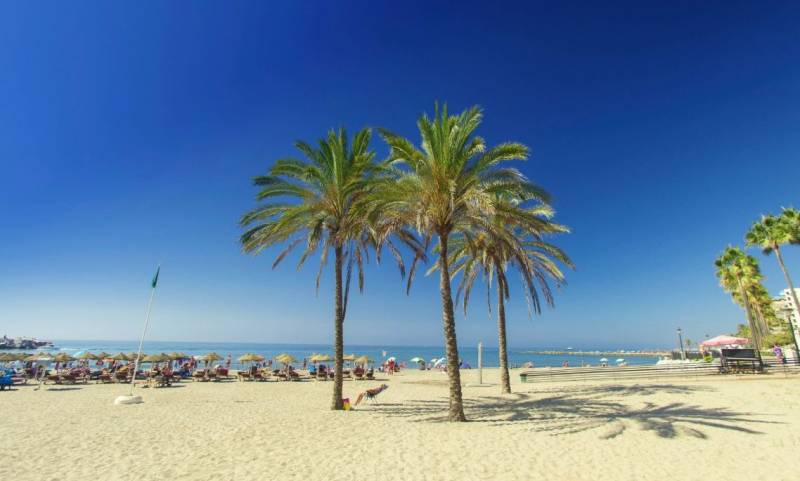
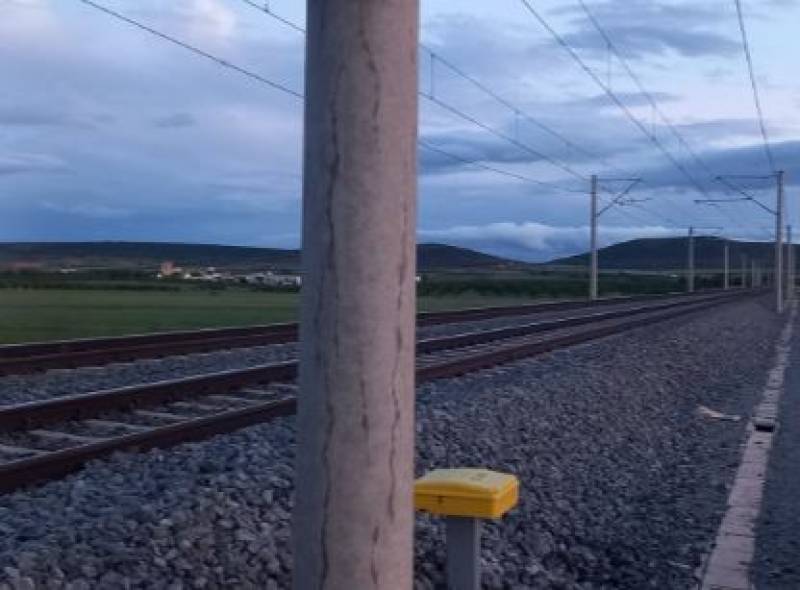
 The stolen cables triggered a full-blown transport meltdown, especially bad timing with people trying to get home after the long weekend. Trains were severely delayed, of course, and although the situation had mainly been resolved by Monday morning, the knock-on effect of so many stranded passengers still looking to travel from Sunday night meant that the chaos lasted well into Monday afternoon before things could get *ahem* back on track.
The stolen cables triggered a full-blown transport meltdown, especially bad timing with people trying to get home after the long weekend. Trains were severely delayed, of course, and although the situation had mainly been resolved by Monday morning, the knock-on effect of so many stranded passengers still looking to travel from Sunday night meant that the chaos lasted well into Monday afternoon before things could get *ahem* back on track.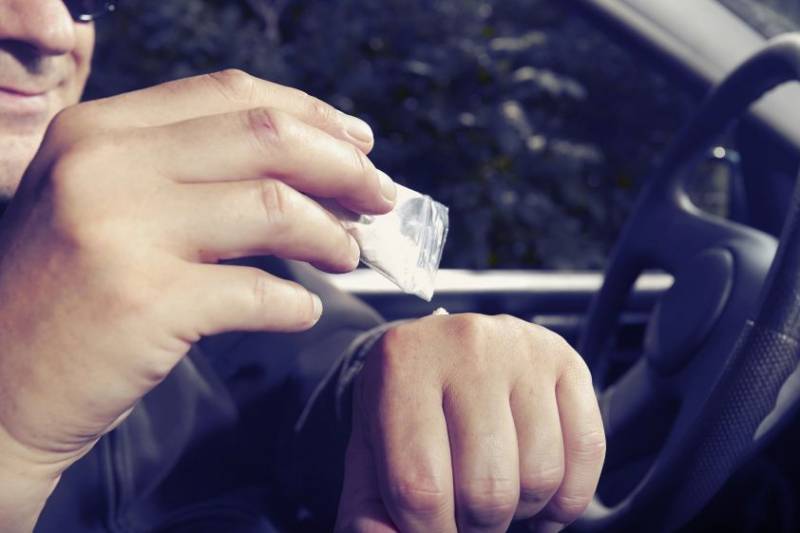
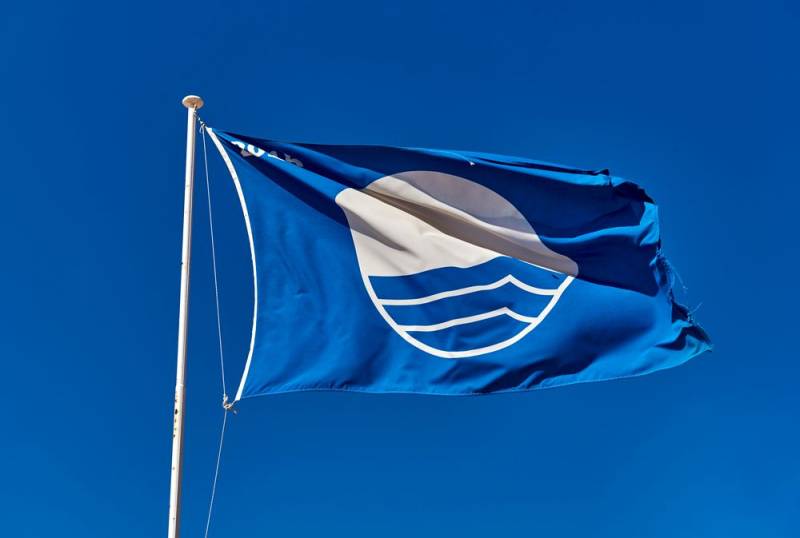
 Murcia also reached a milestone: for the first time ever, all of its coastal regional parks now include at least one Blue Flag beach. Someone at the tourism board is definitely high-fiving themselves.
Murcia also reached a milestone: for the first time ever, all of its coastal regional parks now include at least one Blue Flag beach. Someone at the tourism board is definitely high-fiving themselves.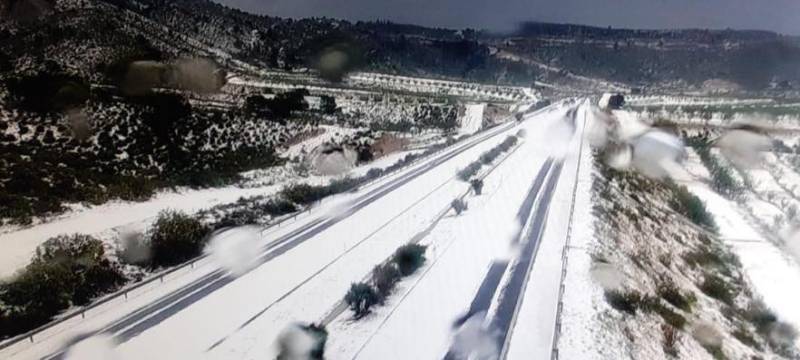
 That said, there’s a catch and it comes in the form of Spain’s ever-watchful Tax Agency, Hacienda. They’ve got a sharp eye on what we’re withdrawing, depositing and generally doing with our money. So if you’re thinking about setting aside some ‘just in case’ funds, here’s what you need to know.
That said, there’s a catch and it comes in the form of Spain’s ever-watchful Tax Agency, Hacienda. They’ve got a sharp eye on what we’re withdrawing, depositing and generally doing with our money. So if you’re thinking about setting aside some ‘just in case’ funds, here’s what you need to know. Foie gras, literally “fatty liver” in French, is prized in fine dining, but it comes at a terrible cost. Ducks and geese are gavage-fed, with food pumped down their throats through metal tubes to fatten their livers to unnatural sizes. Animal rights groups say the result isn’t a delicacy; it’s a diseased organ.
Foie gras, literally “fatty liver” in French, is prized in fine dining, but it comes at a terrible cost. Ducks and geese are gavage-fed, with food pumped down their throats through metal tubes to fatten their livers to unnatural sizes. Animal rights groups say the result isn’t a delicacy; it’s a diseased organ.